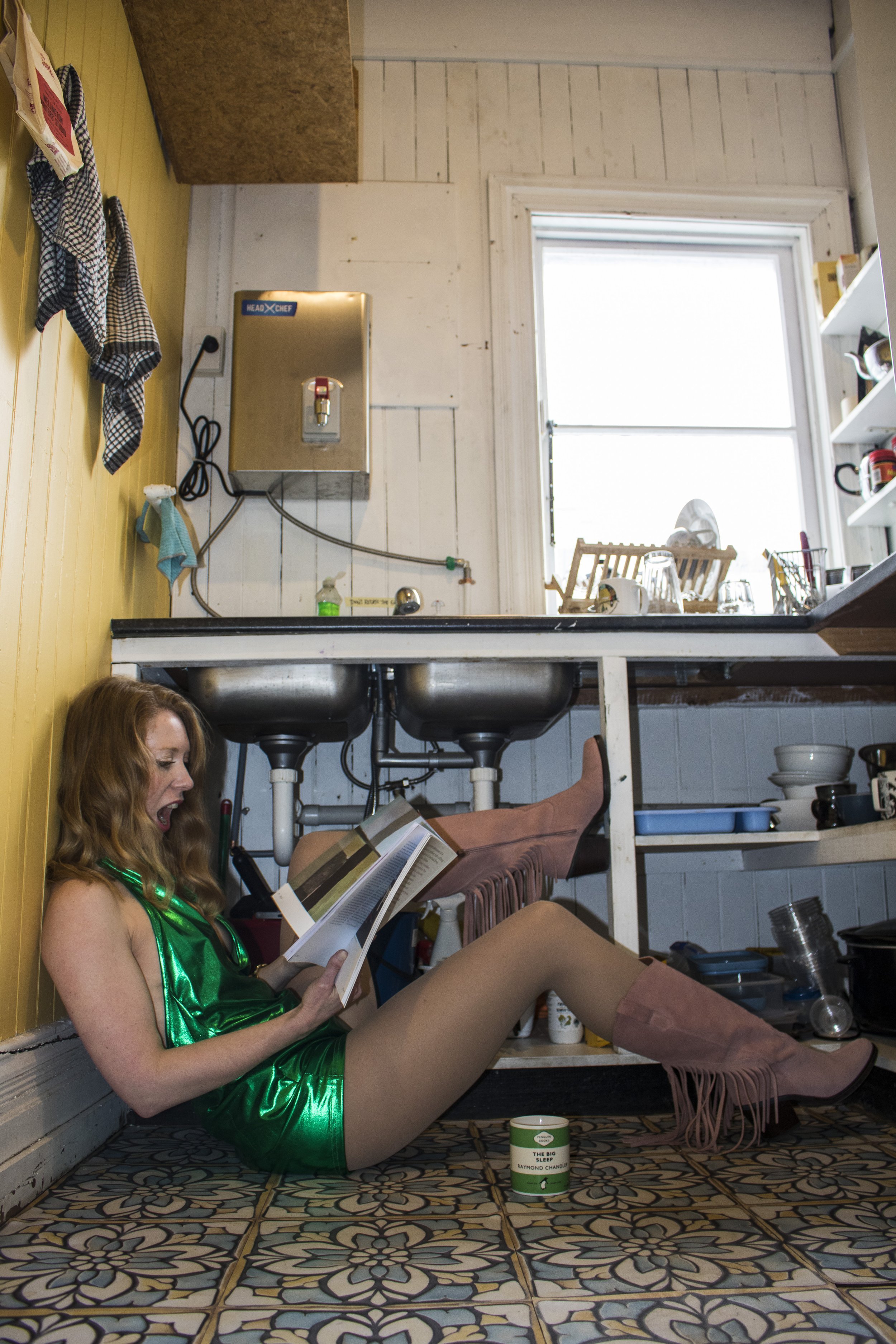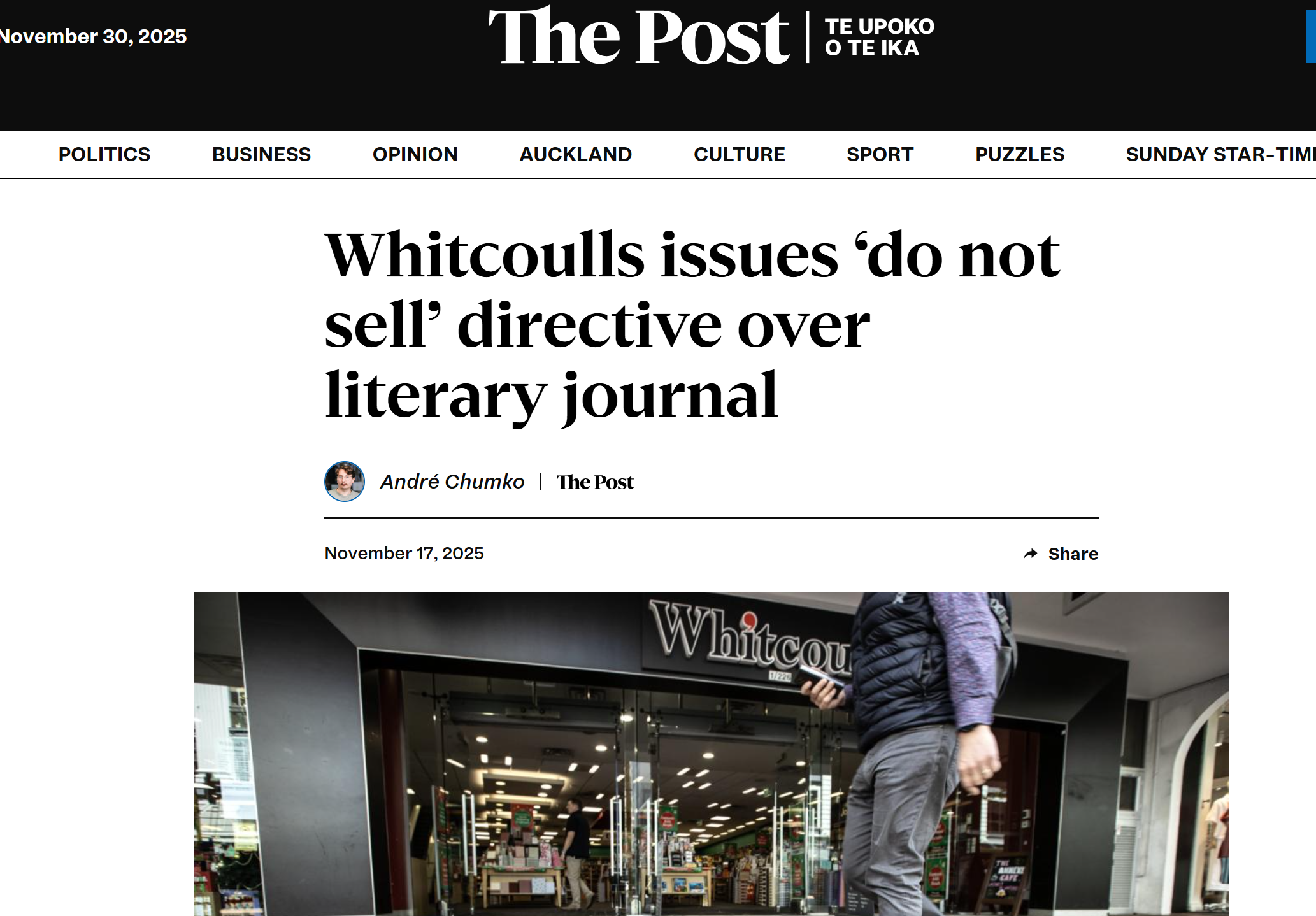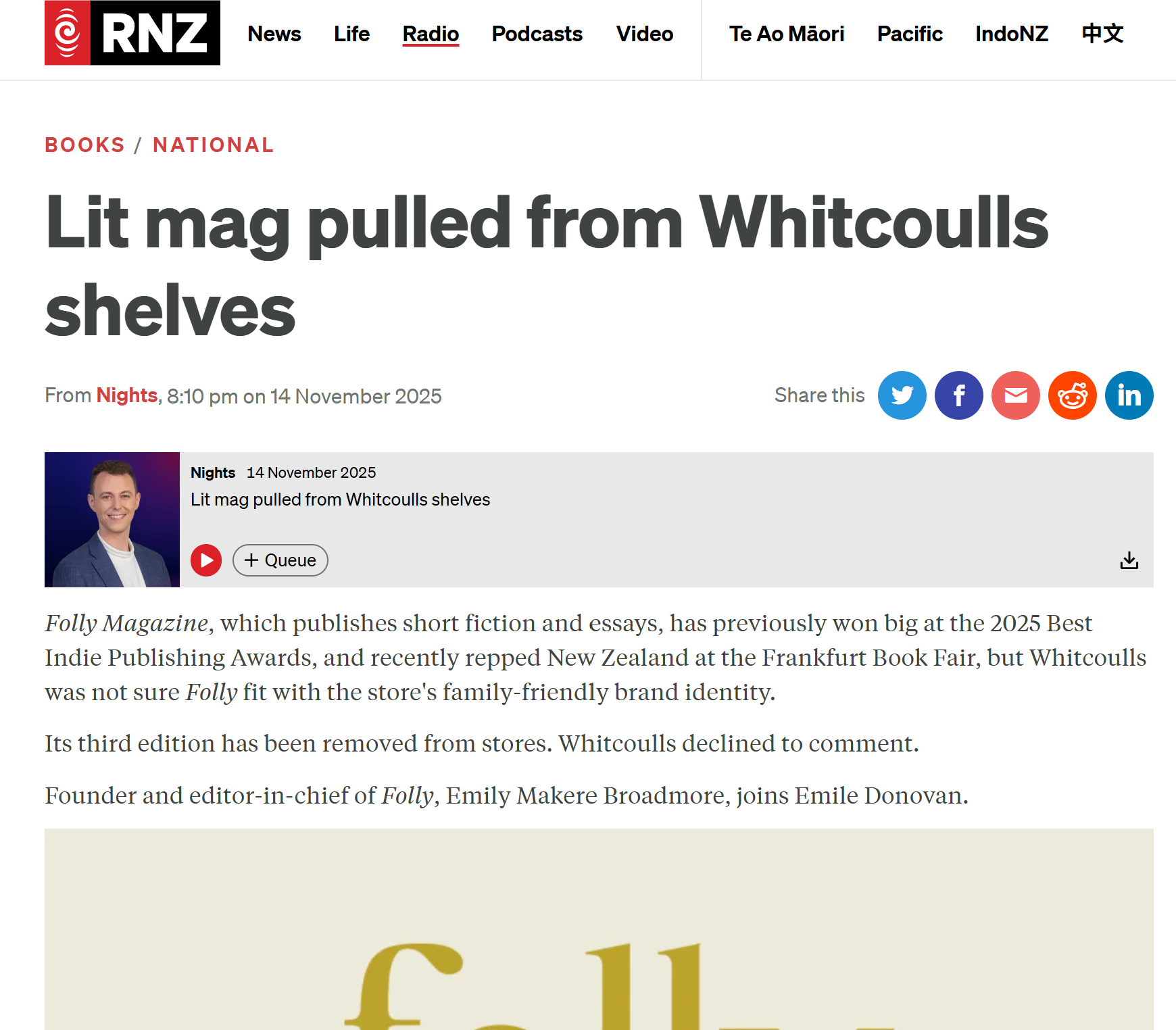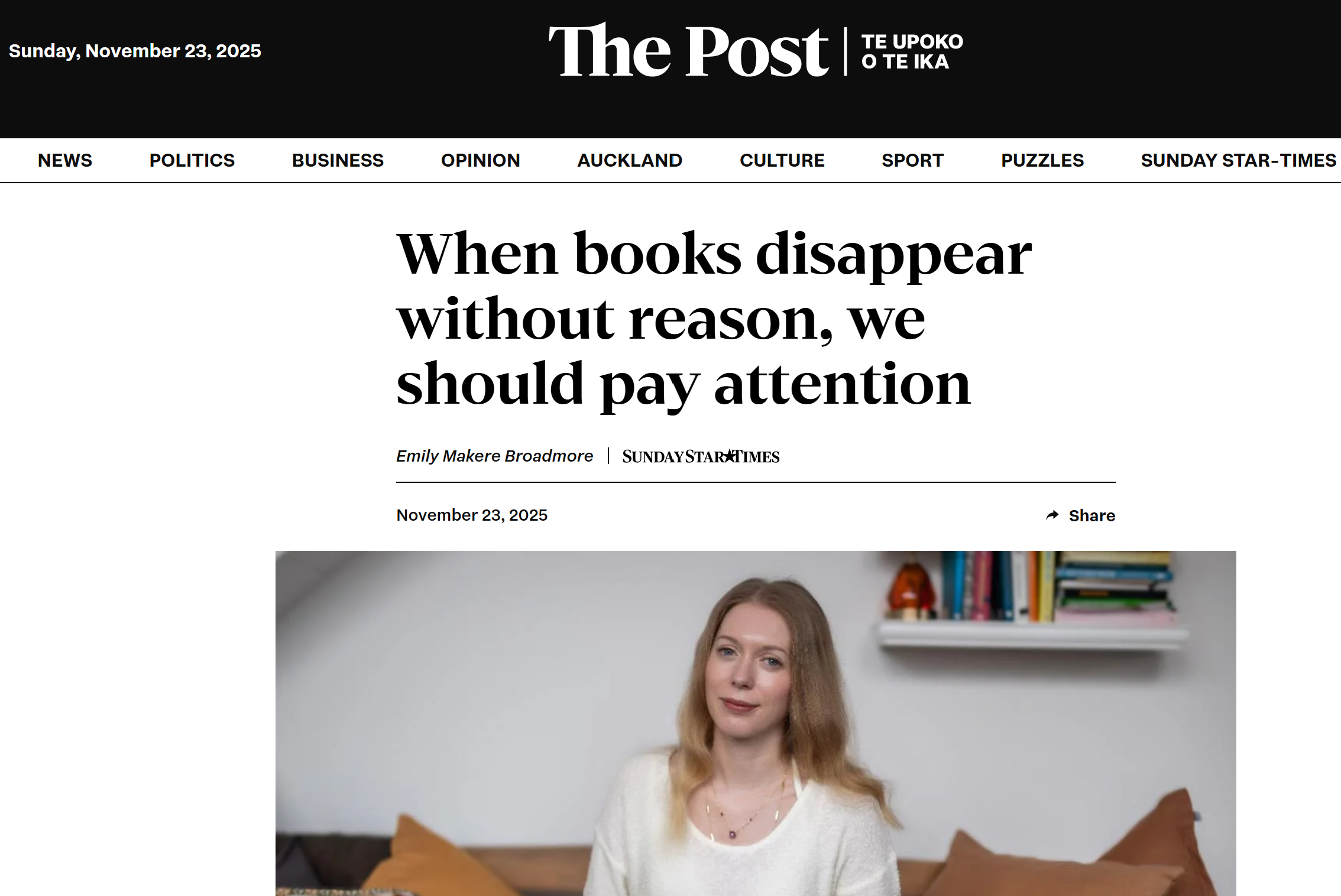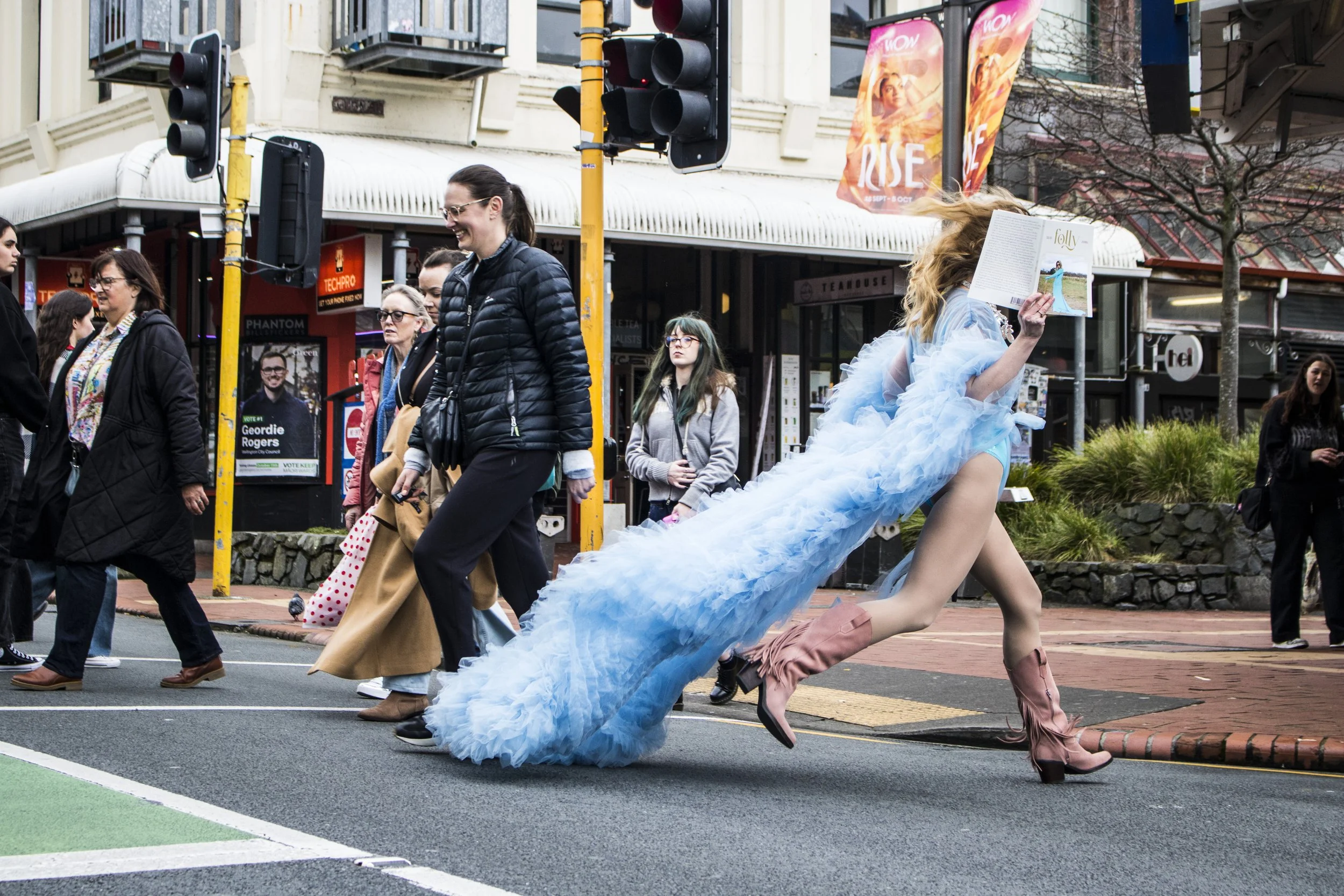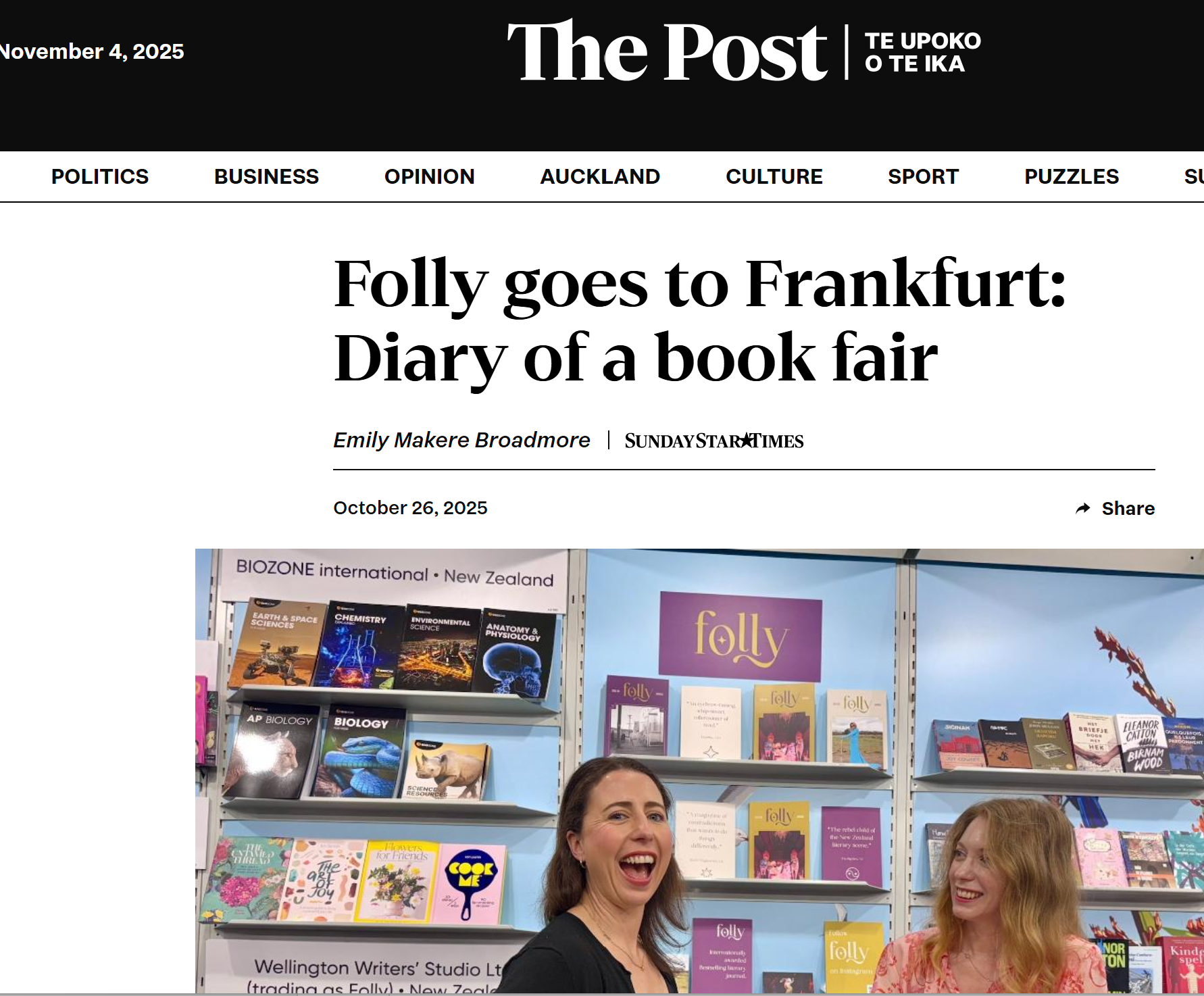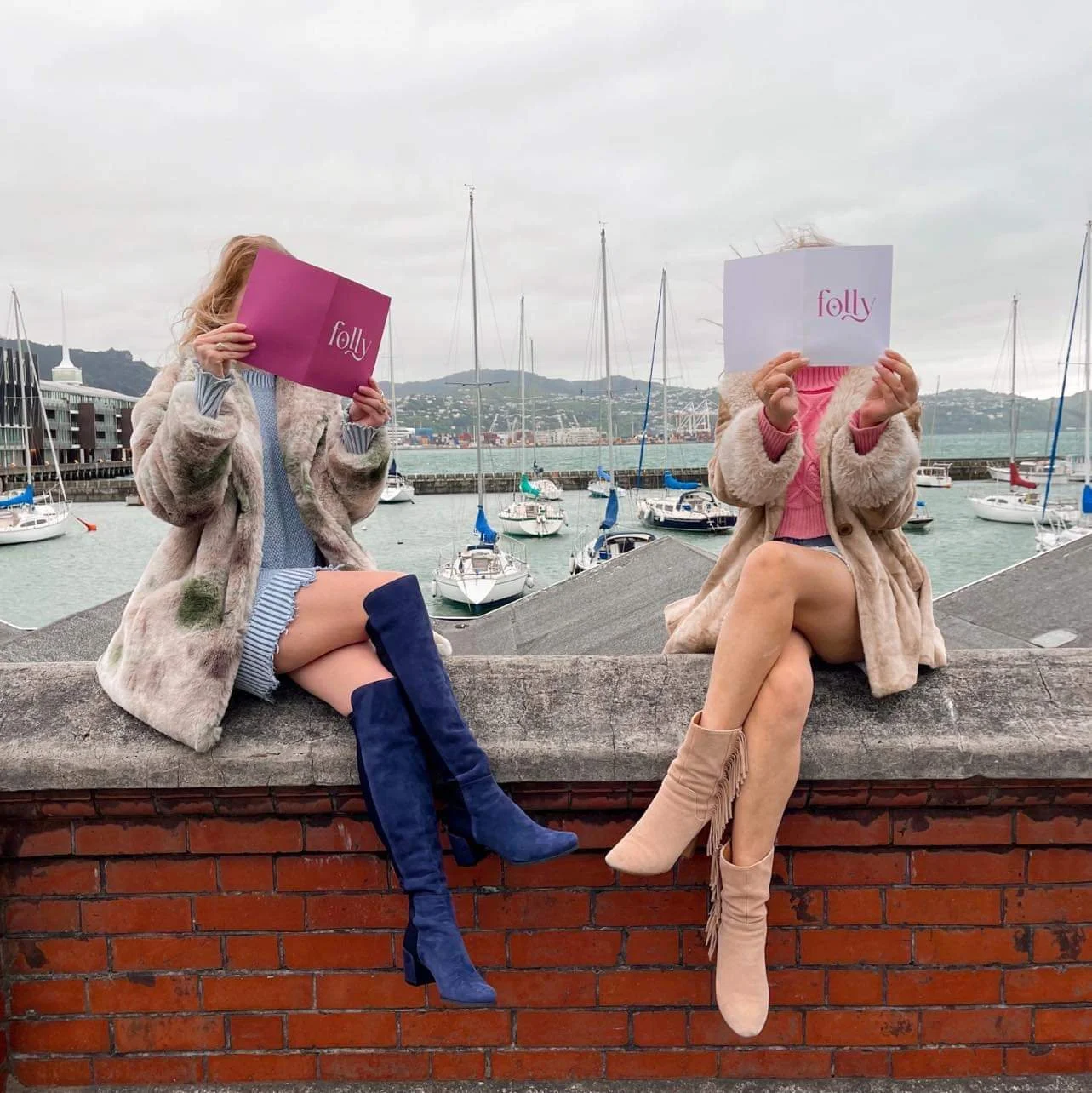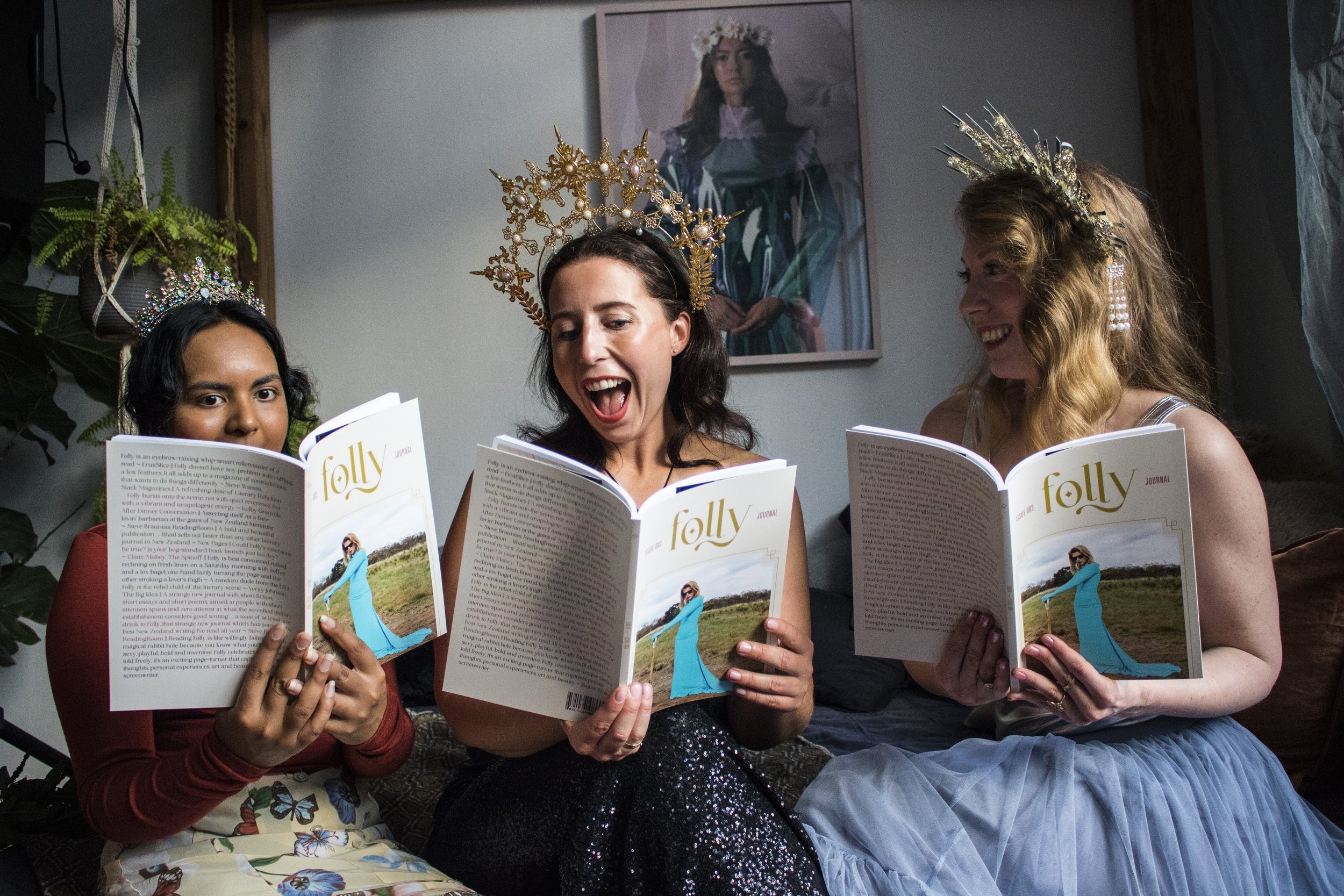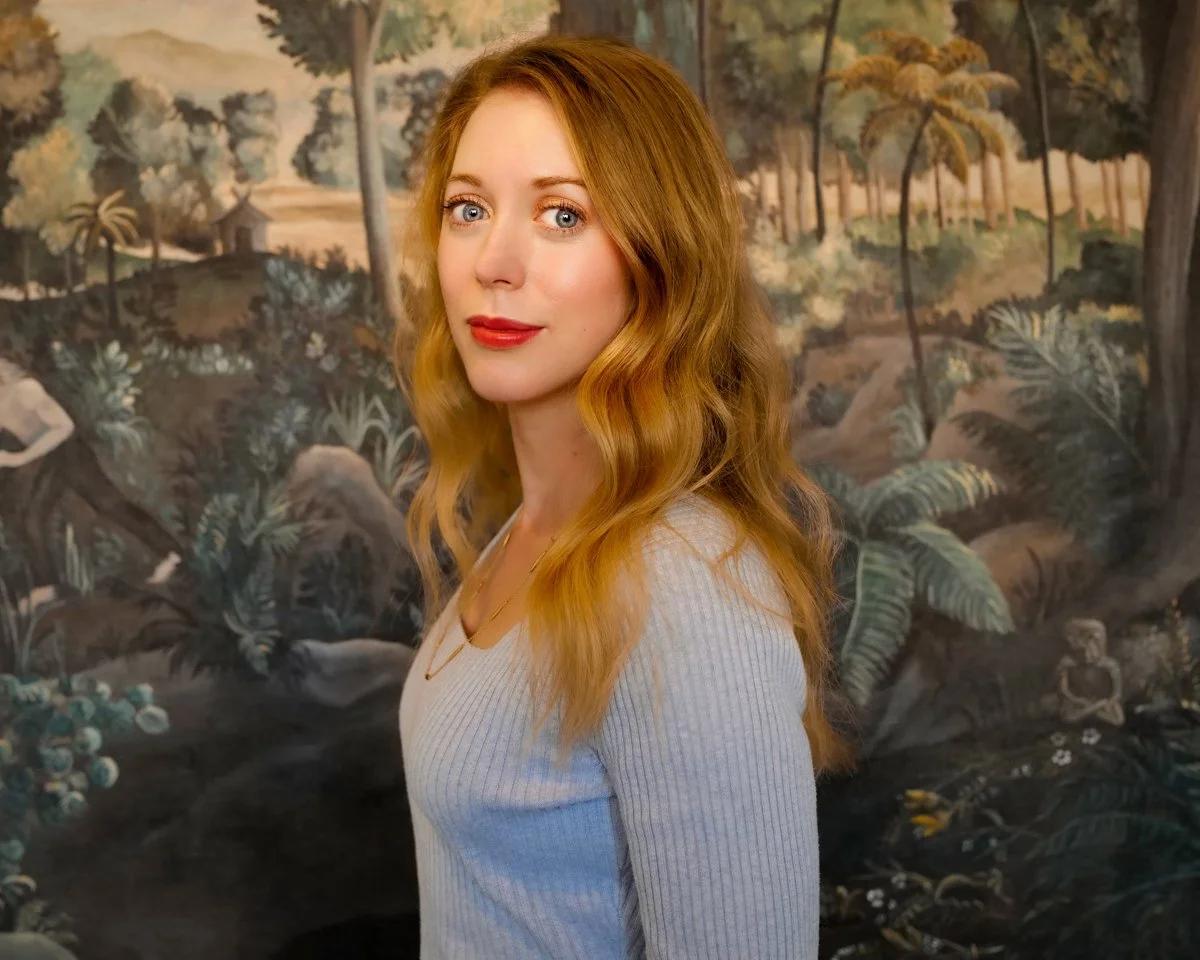
Folly Media & News
Whitcoulls faces accusations of censorship after risque journal removed from shelves
Whitcoulls is being accused of censorship and moral panic - because it's hiding a literary journal with risqué content.
Copies of Folly Journal have been pulled off Whitcoulls shelves around the country and are now only offered when customers ask for it.
Editor and Founder of Folly Journal Emily Broadmore told Heather duPlessis-Allan that Whitcoulls hasn't explained specifically why their books have been removed from stores.
'We have no idea. We've just been told that it's offensive, but we can't figure it out.'
Whitcoulls issues ‘do not sell’ directive over literary journal
Whitcoulls management have ordered staff to refuse all customer requests for a local literary journal it deems offensive, and to send its remaining stock back to the publisher.
Last week Whitcoulls pulled copies of the recently published Folly issue three from its shelves, citing offensive content that didn’t fit with the retailer’s brand identity as a family-friendly store, according to an email The Post has seen. It was to be made available only on request.
Lit mag pulled from Whitcoulls shelves
Folly Magazine, which publishes short fiction and essays, has previously won big at the 2025 Best Indie Publishing Awards, and recently repped New Zealand at the Frankfurt Book Fair, but Whitcoulls was not sure Folly fit with the store's family-friendly brand identity.
Its third edition has been removed from stores. Whitcoulls declined to comment.
Founder and editor-in-chief of Folly, Emily Makere Broadmore, joins Emile Donovan.
When books disappear without reason, we should pay attention
OPINION: Over the past week, hundreds of copies of Folly Journal’s latest issue were stripped from the shelves of 47 Whitcoulls’ stores for being ‘too offensive’ and against its ‘family friendly values’. Staff from across the regional outlets approached us anonymously, saying this occurred within hours of the stock arriving in store.
Securing the future of New Zealand’s lit scene
The literary industry has a marketing problem.
It takes years, sometimes decades to get a book to print, says Emily Broadmore, founding editor of literary journal Folly.
And when it finally does, often it’s launched under the fluorescent lights of local bookstores, where guests are served lukewarm wine and dried-out cheese.
“This is how we celebrate art?”
Folly Goes to Frankfurt: Diary of a book fair
Published by The Sunday Star Times: Editor Emily Makere Broadmore and Art Director Dana Turner travelled to the world’s biggest book fair, the Frankfurt Buchmesse, over 15 – 18 October in Germany where their international publication Folly was part of the New Zealand Collective Stand. The third issue of Folly launches in November.
Wellington Literary Journal on World Stage
Radio New Zealand: A literary journal founded in Wellington two years ago has been named one of five international winners of a US literary magazine incubator prize.
Folly is an annual anthology of collectable art, commentary and essays, short stories and poetry.
The magazine won a silver medal at this years' Indie publishing awards in the USA.
The third issue of Folly is to be launched at the Frankfurt Book Fair next month.
Its founder, Emily Broadmore tells Kathryn what the incubator prize will mean.
Folly wins The Lit Mag Incubator Project
Fresh from Chill Subs, Folly is named as a winner of the inaugural Incubator!
Says Chill Subs: We had 128 magazines apply to our incubator program (wow!). For those who missed it, we're giving 5 magazines $1000 each, a CLMP membership, and access to our team and network of advisors who've been experimenting with sustainable lit mag models for decades.
Folly Journal Splits $1,000 Prize Between Australian and New Zealand Writers After Panel Deadlock
Folly Journal is splitting its annual $1,000 Folly Prize between two writers whose work caused division between the international reading panel and the Wellington Writers’ Studio.
The 2025 prize winners are Katy Knighton of Australia and Kaanti Raju of New Zealand.
The decision to split the prize came after Katy Knighton’s story of satirical absurdism, about a town obsessed with teenage masturbation, generated such polarised responses that editors placed it on the desk at Wellington Writers' Studio for a week, inviting feedback from local writers.
‘Some people thought it was a work of genius, exploring moral panic, societal hypocrisy and how communities navigate youth sexuality. Others thought it was dreadful and that we’d be cancelled,’ says Editor Emily Broadmore. ‘One person left a note on it simply 'Why?' Another person sent us three laugh-cry emoji.’
Knighton says the story’s first line arrived in her head, the product of raising three teenagers. ‘What an endorsement for quirky hilarity,’ she says. ‘I was laughing as I wrote.’
Folly Journal is Ruffling Feathers
Folly Editor Emily Makere Broadmore is interviewed by Steve Watson of Stack Magazines UK.
The magazine describes itself online as, “The rebel child of the literary New Zealand scene,” and, “The love child of a literary journal and a Victorian gossip rag,” and it seems that Folly journal doesn’t have any problem with the idea of ruffling a few feathers. It all adds up to a magazine of contradictions that wants to do things differently, and I hope you’ll enjoy hearing Emily’s story of overcoming establishment criticism to create a fresh new literary voice for New Zealand.
Folly wins something!
In a plot twist no one saw coming (least of all the editorial team), Folly Journal - New Zealand’s fastest-selling literary journal and occasional menace to the nation’s cultural gatekeepers - has just won an international book award.
A Refreshing Dose of Literary Rebellion: A Review of Folly Issue 002
Folly magazine bursts onto the scene, not with quiet reverence, but with a vibrant and unapologetic energy. Described as the “rebel child of the literary scene” and a “strange new journal” aimed at those perhaps tired of the more traditional literary establishment, Folly carves out its own unique space. It embraces being “a bit of fun”, intended for enjoyment and perhaps even a little “general mistreatment”, whether displayed on a coffee table or kept in the bathroom.
New Lit on the Block: Folly Journal
Many would agree it’s an act of utter folly to start up a traditional print literary journal in this day and age, let alone a ‘high end, coffee table’ production, so the name, Folly Journal, certainly seems apt for this print-only literary publication featuring cultural commentary, creative writing, essays, poetry, and “carefully curated scandal.” Trying, as Founder and Editor in Chief Emily Makere Broadmore says, to be “lightish, ornamental, and intriguing. Each issue documents our cultural moment in all its messy, magnificent glory in an inviting and accessible magazine format.”
Ending the echo chamber: How to find where left and right unite
Published by the Sunday Star Times, Nov 2024
On the same day that I lunched in the Capital with a well-known left-leaning public intellectual, Act leader David Seymour was spotted on ThreeNews flicking through the pages of the newly released issue of Folly Journal.
My sister, an Aucklander oblivious to politics (although I assume she was aware of the hīkoi) messaged me excitedly. Folly's on tv! I took a photo!
Interview with Jesse Mulligan on death to the echo chamber
Interview on RNZ Afternoons, 5 December 2024
There's lots of talk around finding unity around at the moment ... various politicians here and around the world are promising to bring people together.
But it seems like it's not really happening, in fact if any anything, it feels like the political divide between left and right is getting worse. An opinion piece in the Sunday Star Times just this weekend examined
Titled Ending the echo chamber: How to find where left and right unite - was written by Emily Makere Broadmore.
And Emily some interesting observations about why the left and right don't talk to each other anymore.
Detonating Literary Expectations: Dana Turner Unplugged at Unity Books
Unity Books sat down with Folly Art Director, Dana Turner, where she shares the vision, purpose and unexpected success of Folly Journal.
November 27, 2024
What were you doing when you came up with the idea for Folly?
Like any good writer, our editor in chief Emily Makere Broadmore created what she couldn’t find. A journal that combined the overseas rigor of overseas publications with the kind of stories you want to read at Midnight Espresso after too many shots of tequila. Think of Folly as the lovechild of a Victorian gossip rag and a literary journal.
Interview with Folly editor, Emily Broadmore
For the New Zealand Festival of the Arts
13 November 2024
Folly is an annual print only anthology of art, short stories, non-fiction and poetry produced in Wellington city. Published in November each year, the 2024 issue has just been launched. I had a chat with Folly's editor, Emily Broadmore about why she chose to create a print journal in an increasingly digital world, how she selects the stories and what readers can expect.
Interview with Folly editor, Emily Broadmore | Aotearoa New Zealand Festival of the Arts
Rejecting literary elitism
As reported by The Post.
George Titheridge wrote their winning short story in the bath, on their phone. As you do.
It’s called flash fiction, where brevity still makes way for character and plot.
The yarn, a provocative tale about a risqué relationship, won a prize for the best short story in the inaugural Folly Journal - a curation of experimental and lighter literary works, made up of fiction, poetry, creative non-fiction and commentary.
New Wellington journal rejects ‘literary elitism’ | The Post
Finding the space to write
As reported by The Post, 2024
In 2023, Broadmore established the Wellington Writers Studio, upstairs from an art gallery corner of Cuba St and Ghuznee St in the 128-year-old Berry Building.
Once home to the New Zealand Photographic Company and William Berry, a popular portrait photographer, the building has been home to many artists over the years, including musicians and a dancing school.
Short Story Competition: Finding the right space to do your writing | The Post
Sex in Wellington
For Newsroom’s ReadingRoom, 2024
I edit Wellington journal Folly. Last year, we called for stories from New Zealanders that were “a bit sexy”. A few fans of the retired journal Aotearotica sent stories of Ponsonby parties and sexual encounters, but we weren’t after erotica. We wanted joyful, punchy, choke-into-your-coffee stories about the side of life and relationships that aren’t flaunted to the world. And we wanted them written in a way that we hadn’t seen before in New Zealand.
